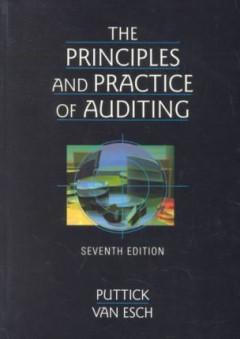Answered step by step
Verified Expert Solution
Question
1 Approved Answer
required information: a) b) compute the gross profit percentage required information: c) Psymon Company, Inc., sells construction equipment. The annual fiscal period ends on December
required information:

a)

b) compute the gross profit percentage
required information:

c)

Psymon Company, Inc., sells construction equipment. The annual fiscal period ends on December 31. The following adjusted trial balance was created from the general ledger accounts on December 31: Credits Debits $ 59,810 21, 303 90, 500 67,000 Account Titles Cash Accounts Receivable Inventory Property and Equipment Accumulated Depreciation Accounts Payable Coanon Stock Retained Earnings, January 1 Sales Revenue Cost of Goods Sold Salaries and wages Expense office Expenses Interest Expense Income Tax Expense Totals $ 28, 100 41,900 124,000 15,000 238,400 138,800 23,800 24,800 3,10a 14, 190 $14100 $402,100 1. Prepare a multistep income statement that would be used for external reporting purposes. TIP: Some of the accounts listed will appear on the balance sheet rather than the income statement. PSYMON COMPANY, INC. Income Statement For the Year Ended December 31 Sales Revenue $ 238,400 Cost of Goods Sold 138,800 99.600 Gross Profit Salaries and Wages Expense Office Expenses Income from Operations Income before Income Tax Expense Income Tax Expense Net Income Campus Stop, Inc., is a student co-op. Campus Stop uses a perpetual inventory system. The following transactions (summarized) have been selected for analysis: $260,100 a. Sold merchandise for cash (cost of merchandise $115,430). b. Received merchandise returned by customers as unsatisfactory (but in perfect condition) for cash refund (original cost of merchandise $700). c. Sold merchandise (costing $5.350) to a customer on account with terms n/30. d. Collected half of the balance owed by the customer in (c). e. Granted a partial allowance relating to credit sales the customer in (c) had not yet paid. 1,650 13,000 6,500 1,660 No Transaction General Journal Debit Credit 1 a(1) Cash 260,100 Sales Revenue 260,100 2 a(2) Cost of Goods Sold 145,430 Inventory 145,430 | b(1) Cost of Goods Sold x 1,650 Cash 1,650 4 b(2) 700 Inventory Cost of Goods Sold 700 $ on c(1) 13,000 Accounts Recetvable Sales Revenue 13,000 6 c(2) 5,850 Cost of Goods Sold Inventory 5,850 7 d Cash 6,500 V Accounts Receivable 8 e 1.800 X Allowance for Doubtful Accounts Accounts Receivable 1.800
Step by Step Solution
There are 3 Steps involved in it
Step: 1

Get Instant Access to Expert-Tailored Solutions
See step-by-step solutions with expert insights and AI powered tools for academic success
Step: 2

Step: 3

Ace Your Homework with AI
Get the answers you need in no time with our AI-driven, step-by-step assistance
Get Started


